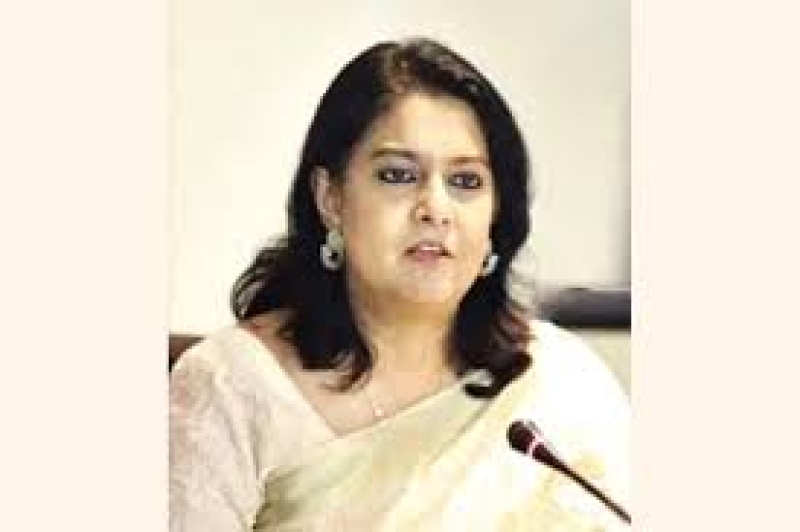- Power generation at Payra Thermal Power Plant 1st unit starts after a month |
- Irregularities, injustice will no longer be accepted in politics: Jamaat Ameer |
- 2 arrested in Jhenaidah for allegedly selling madrasa student |
- Koko’s wife campaigns for Tarique in Dhaka-17 |
- Bangladeshi Expats Cast 4.58 Lakh Postal Votes |
Adviser Urges Stronger Environmental Laws in Ship Breaking Industry

Environment, Forest, and Climate Change Adviser Syeda Rizwana Hasan on Thursday urged for stricter enforcement of environmental laws in Bangladesh’s ship breaking industry, warning that without urgent reforms, the country could become a dumping ground for hazardous waste.
Speaking at a workshop on the National Regulatory Framework for Ship Recycling and Hazardous Waste Management at Hotel Intercontinental, Rizwana stressed the human and environmental costs of the industry. “Ship breaking should not continue at the expense of human lives,” she said.
She called for the prohibition of ship breaking activities in the tide and ebb region, as directed by the High Court, and urged that this directive be incorporated into national policy. “There is no justification for maintaining this industry if it fails to meet global safety and environmental standards,” she added.
Rizwana pointed out the dangerous working conditions in the industry, where workers face life-threatening hazards due to a lack of proper safety equipment. She compared the ship breaking industry to Bangladesh’s garment sector, where foreign buyers ensure labor standards are met, while ship breaking owners evade responsibility for cleaning up hazardous waste by bringing ships to Bangladesh under false certifications.
The adviser emphasized that the issue isn’t just about ships carrying waste, but about the toxic materials embedded in their structures—materials Bangladesh lacks the capacity to manage safely. She also criticized weak regulations that allow hazardous waste to be dumped in the country and called for better enforcement of international waste management standards.
Rizwana revealed that fraudulent waste declarations have enabled illegal imports, with companies issuing certificates from multiple countries to facilitate ship breaking. She emphasized the need for credible legal regulations regarding waste declarations and warned that workers remain unaware of the toxic risks they face on the job. She also suggested that ship breaking yards should display signboards in multiple languages to warn workers about cancer risks.
Echoing the "polluter pays" principle, Rizwana argued that waste generators must be held accountable for proper disposal. Most vessels arriving in Bangladesh, she said, are registered in small island states and re-flagged by European companies to evade legal responsibility. “Would any European country allow ship breaking on its own beaches? Why should the standards be different when workers’ lives are at stake?” she asked.
Rizwana also criticized the Ministry of Industry for permitting ship breaking despite ongoing environmental violations. She revealed that some yards continue operating without valid environmental clearance, citing a serious worker injury on February 3.
"Whose interests are we protecting when drafting regulations?" she questioned. “In Bangladesh, ship owners and breakers control the narrative, often exploiting regulatory loopholes.”
Rizwana concluded by reaffirming her commitment to preventing Bangladesh from becoming a toxic waste dumping ground. “We cannot allow this industry to thrive at the cost of human lives. Any legal framework for ship breaking must align with global safety and environmental standards,” she said, stressing that the High Court’s directives must be fully implemented to protect both workers and the environment.
Adilur Rahman Khan, Adviser for the Ministry of Industry; Zakia Sultana, Secretary of the Ministry of Industry; and Håkon Arald Gulbrandsen, Ambassador of Norway to Bangladesh, also spoke at the event.

